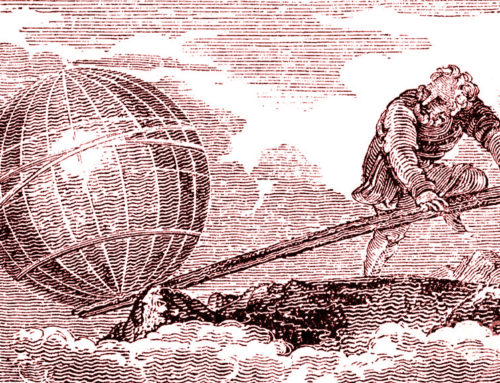“Are there twenty men alive in the world today who see things as they really are?” That was the question on the mind of Thomas Merton. If there were, he mused, “…that would mean that there were twenty men who were free, who were not dominated or even influenced by any attachment to any created thing or to their own selves or to any gift of God, even to the highest, the most super-naturally pure of His graces.”
It turns out he didn’t believe that was the case. But perhaps there were one or two out there. There must be, he reasoned, because the world needed someone who was holding everything together and keeping the universe from falling apart!
But hasn’t that always been the case? Jesus’ little band of apostles were certainly few in number, but that’s all He needed. And He knew they would always be few. Jesus never pinned his hopes on large numbers. In fact, if there is to be any positive change in the world, those numbers may actually have to get smaller. A lot smaller.
Peter Kreeft, writing on American culture, makes the point in a particularly compelling way:
“If God still loves His church in America, he will soon make it small and poor and persecuted just as He did to ancient Israel—so that He can keep it alive by pruning it. If He loves us, He will cut the dead wood away. And we will bleed. And the blood of the martyrs will be the seed of the Church again and a second spring will come and new buds—but not without blood. It never happens without blood, without sacrifice, without suffering. Christ’s work, if it is really Christ’s work and not a comfortable counterfeit, never happens without the cross. Whatever happens without the cross may be good work, but it is not Christ’s work. For Christ’s work is bloody. Christ’s work is a blood transfusion. That is how salvation happens.”
Scripture is replete with stories of victorious underdogs and outnumbered armies. Jesus seems to revel and reveal Himself in smallness. And His story is only magnified by these small numbers of small men who persevere in spite of the odds, which are, humanly speaking, stacked against them. Hans Kung writes that we persevere because the vision is true. “Because in the light of Jesus’ message,” he says, “the small size of a group, the limited means, the seeming ineffectiveness of the activity, the work should not be seen as signs of failure. It is precisely in impotence that power, in weakness that strength, in smallness that greatness, and in humility that self-consciousness can be manifested. We can hope against hope, even in the Church. The power of the Gospel of Jesus Christ will prove in the long run to be stronger than all human incompetence, fear, and insincerity, and more forceful than all our foolishness, weakness, and cynicism.”
In reading Ron Sider recently, I was struck by a bold claim that I’ve not been able to shake. “I have no doubt,” he asserted, “that if 10 percent of the Christians today would really live the way Jesus called us to, we would transform the world in powerful ways in the next twenty-five years.”
That’s a remarkable statement on many levels. Not the least of which is the suggestion that fewer than 10 percent live that way. Perhaps far fewer. And yet, even while we bear witness to the tremendous growth of the Church, there is almost a complete lack of influence in the culture. Perhaps this is why.
But let’s say we’ve got our 10 percent. Or Merton’s twenty men. Or Jesus’ twelve. Who are they today? Where are they? Are there just 10% of all Christians alive in the world today who see things as they really are?
You have to be careful with numbers like these. They are, really, nothing more than abstractions. Whose names will be counted among them—whatever their number?
William Law pondered this question of the imitation of Christ when he asked, “Now, who that wants this general sincere intention, can be reckoned a Christian? And yet if it was among Christians, it would change the whole face of the world . . . Let a tradesman but have this intention and it will make him a saint in his shop.” Indeed.




